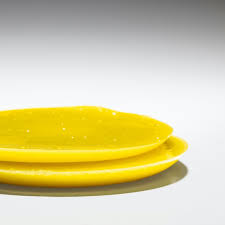Waste cooking oil is a common byproduct of culinary activities in restaurants, households, and various foodservice establishments. Improper disposal of this oil can have detrimental effects on the environment and public infrastructure. However, a growing awareness of the need for sustainability and environmental responsibility has led to innovative methods for waste cooking oil disposal. In this article, we explore the importance of responsible waste cooking oil disposal and the role it plays in shaping a greener and more sustainable future.
The Environmental Impact of Inappropriate Disposal
When waste cooking oil is not disposed of correctly, it can lead to several environmental issues, including:
- Sewer and Pipe Blockages: Pouring used cooking oil down drains can cause blockages in sewer systems and pipes, resulting in costly repairs and reduced efficiency of wastewater treatment facilities.
- Soil and Water Contamination: Inappropriate disposal can lead to soil and water contamination, causing harm to local ecosystems and wildlife. This contamination can have long-lasting negative effects on the environment.
- Resource Waste: Waste cooking oil contains valuable resources that can be repurposed for various applications, including the production of biofuels. Inefficient disposal squanders this resource.
- Greener Alternatives for Waste Cooking Oil Disposal
To address the environmental challenges associated with waste cooking oil, a range of eco-friendly and sustainable disposal methods have emerged. These alternatives not only minimize environmental harm but also transform waste cooking oil into valuable resources. Key methods include:
- Recycling: Recycling waste cooking oil is one of the most environmentally responsible options. It involves collecting used cooking oil and converting it into biofuels, which can be used in vehicles or industrial processes. This not only reduces waste but also decreases the demand for fossil fuels.
- Composting: Certain waste cooking oils, particularly vegetable-based oils, can be used for composting. When mixed with organic materials, they can enhance compost quality, making it a valuable resource for agriculture and gardening.
- Conversion to Soap: Another eco-friendly option is to convert waste cooking oil into soap. This process involves saponification, where the oil is mixed with an alkali to create soap, reducing waste and promoting sustainability.
- The Importance of Proper Disposal Practices
Promoting responsible waste cooking oil disposal practices is essential for a greener and more sustainable future. Businesses, households, and foodservice establishments should consider the following actions:
- Use Collection Services: Businesses and restaurants should work with certified collection services that specialize in collecting and recycling waste cooking oil. These services ensure that the oil is properly processed and repurposed.
- Educate Staff and Residents: Proper waste cooking oil disposal starts with education. Businesses and households should educate their staff or residents about the importance of environmentally responsible practices.
- Legislation Compliance: Ensure that all disposal practices align with local and national regulations and guidelines related to waste cooking oil.
Conclusion
Responsible waste cooking oil disposal is an integral part of the journey toward a greener and more sustainable future. Recognizing the environmental impact of improper disposal, many individuals and businesses are now committed to adopting sustainable practices. By utilizing recycling, composting, or conversion to soap, waste cooking oil can be transformed from an environmental liability into a valuable resource. This shift towards responsible waste cooking oil disposal not only benefits the environment but also helps reduce our reliance on fossil fuels and contributes to a more sustainable and eco-conscious future.




